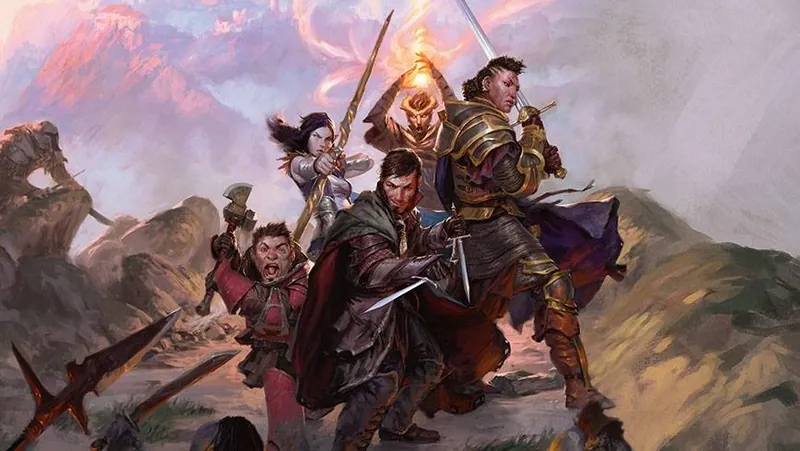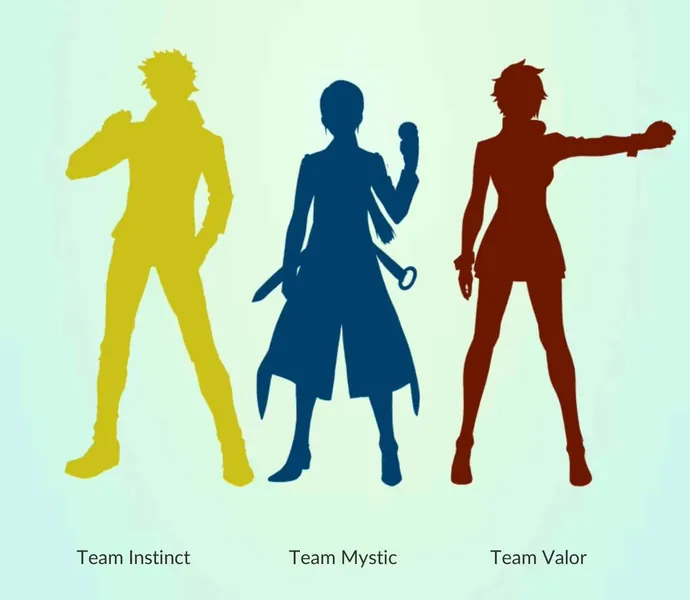http://www.tinker-entertainment.com/sitavriend/psychology-and-games/the-power-of-a-group/
Groups are very interesting to psychologists. You might not think about it, but groups are very powerful. They can change your behavior and the way you think. Groups can even make you do things you wouldn’t normally do. According to Brown (1988) a group consists out of two or more people. Some groups are more group-like than groups, if that makes sense. For example: when you are a game designer, you form a group with all other game designers in the world. You’d call other game designers your colleagues even if they work in a different company. But you also form group with the people you work with every day: your team. You and your team are more group-like than you and all the other game designers in the world. A group is more group-like when it has a group structure, its individuals share a common identity and are interdependent. Groups usually are made up of well-defined roles. Each member of the group has his or her own tasks and these complement the tasks of other group members. A successful group like your game-dev team has unique roles for each member. When these roles are vague or blend together, the group becomes less successful.
We are social beings, groups are necessary for our survival and happiness. But there are other benefits to groups as well. Your performance goes up when you perform a simple task when others are present. This effect is called social facilitation (Zajonc, 1965). Social facilitation can help many athletes perform better when they are competing. Even the presence of virtual others can aid social facilitation (Park & Catrambone, 2007). Unfortunately the effects of social facilitation work the other way around when it comes to complex tasks or tasks that require concentration. The presence of others will hinder performance in those cases.
There are more disadvantages to groups beside performance on complex tasks. The presence of others can also cause social loafing (Latané, 1979). People will put less effort into a task when they are part of a group compared to when they are working alone. You might remember this group school projects: there were always free riders. Social loafing is contagious as well. When one person slacks off, others will follow. Would you like to avoid social loafing for future (school) project? Make tasks meaningful, important and make personal effort identifiable. Having a more cohesive and tight group can help as well. Go out for dinner with your game-dev team sometimes, it’s fun as well.
Another disadvantage to groups is that it can lead to groupthink in certain cases. Groupthink is the tendency of group members to think alike. This can lead to some pretty bad decisions (Janis, 1971). Groupthink usually occurs in very cohesive groups where members are similar to each other. There often is pressure towards conformity as well. To combat groupthink, groups have to diversify their members. A group can think about recruiting people who think differently or people who belong to minorities. That is why many people want to increase diversity in the games industry. Many studios and companies have mostly white male employees in their dev teams and they are at risk of groupthink. Strong and directive leaders can also increase groupthink, especially when they are not open to someone else’s point of view. Group members can become afraid to express their ideas or concerns. It’s best to become the devil’s advocate if you see this happen. Question your leader’s point of view even when you agree. Others will follow your example.
In certain cases groups can lead to deindividuation. Deindividuation is the loss of individuality that can happen when members of the group lose individual accountability and self-awareness. The interest of the group becomes more important than a member’s self-interest. Anonymous is a good example of deindividuation but so are most fascist groups and football (soccer) hooligans. Within groups like anonymous there are no individual roles and members are not individually accountable. Deindividuation can make groups incredibly powerful but dangerous as well.
I’d like to end with a little disclaimer: the effects of groups are studied in the field of social psychology. Most of the research on groups and its effects are done in western countries. There is no question that culture is also a huge factor in how we behave in groups. There is no doubt that there are differences per culture. The theories discussed in this article may not apply to eastern, middle eastern or african cultures. You should take that into account when planning to release your game to a certain country. Also, the knowledge we have on group behavior now is based on averages and not individuals. There will always be people who don’t follow the effects.
Dungeons & Dragons
Cooperation of a group is very important in the pen and paper roleplaying game Dungeons & Dragons. Each player creates a character before the party can begin their journey together. Those of you who are familiar with the game know that the most successful parties have characters from diverse backgrounds. One member can be a half-orc fighter who takes and deals the damage during a fight, another member could be a human cleric who heals the party members after a fight and yet another member could be a elven ranger who guides the party through the forest. Each character has his or her own well-defined role that complement the other characters. During a session there is very little social loafing when the group is just right. Each member’s personal efforts are identifiable and the tasks are meaningful even when there is no combat. Unfortunately there is no social facilitation. Your dice roll won’t improve because of the group.

A very diverse group
Mobile games
Social mobile or casual games can also benefit from knowing a little about the psychology of groups. Unfortunately, many social casual games out there today do a poor job. They don’t make any use of any of the benefits from groups. In many games each player has the same role as the next player and there is no clear group. While everyone who plays Candy Crush form a group, they are not as group-like as a Dungeons & Dragons party.
A mobile and social game that did, to some extent, apply the psychology of groups is Pokémon Go. Last summer the game was very popular in the Netherlands (and many other countries). Player’s interacted with each other even though they had never met before. Everyone who played Pokémon Go automatically formed a group with all the other players. Players could also join another group when they reached a certain level: their team. A player can choose to join one of three teams: team Mystic (blue), team Valor (red) and team Instinct (yellow). When players were catching Pokémon or fighting a team, they met other players. One of the first questions they asked you was which team you joined. If you are not a member of their team, you are trash. That’s pretty powerful considering that the groups are based on very little but a personal preference of color or leader. There is a risk of deindividuation since there are no individual roles in Pokémon Go or personal accountability. The fact that players have self-interest is the only thing that saves people from deindividuation.
Which team did you join?
Ideas and suggestions for game design
Any game were multiple people play together can benefit from the psychology behind group processes. Think about social games and MMO(rpgs), but also cooperative games or team based games. When designing these games try to avoid groupthink, reduce the risk of deindividuation and create individual roles that complement other roles. You can avoid groupthink by having diverse characters and roles. Also consider attracting a diverse target audience(s) to the game. Think about using Bartle’s taxonomy (Bartle, 1996) to attract players who enjoy different aspects of the game (https://www.youtube.com/watch?v=yxpW2ltDNow). Having individual roles and tasks can combat groupthink as well. To reduce the risk of deindividuation you can design systems that keep players individually accountable for their actions. For example: add a mechanic that punishes players when they do something you don’t want them to do. Besides the interest of the group or party, players should also have a self-interest. Maybe players have their own XP to think about or they have to collect their own gold.
References
- https://www.youtube.com/watch?v=UGxGDdQnC1Y
- Bartle’s taxonomy http://mud.co.uk/richard/hcds.htm
- Bartle, R. (1996). Hearts, clubs, diamonds, spades: Players who suit MUDs. Journal of MUD research, 1(1), 19.
- Park, S., & Catrambone, R. (2007). Social facilitation effects of virtual humans. Human Factors, 49(6), 1054-1060.
- Zajonc, R. B. (1965). Social facilitation. Ann Arbor: Research Center for Group Dynamics, Institute for Social Research, University of Michigan.
- Janis, I. L. (1971). Groupthink. Psychology today, 5(6), 43-46.
- Stogdill, R. M. (1974). Handbook of leadership: A survey of theory and research. Free Press.
- Brown, R. (1988). Group processes: Dynamics within and between groups. Basil Blackwell.
- Latané, B., Williams, K., & Harkins, S. (1979). Many hands make light the work: The causes and consequences of social loafing. Journal of personality and social psychology, 37(6), 822.


